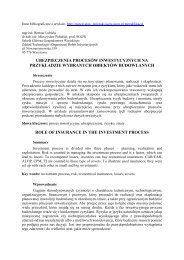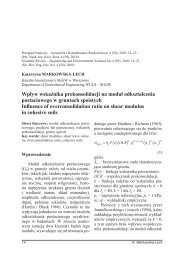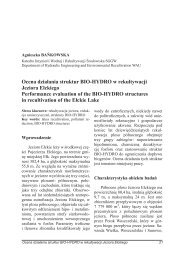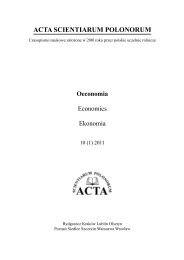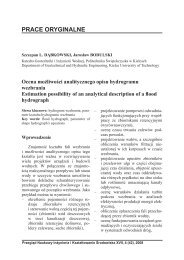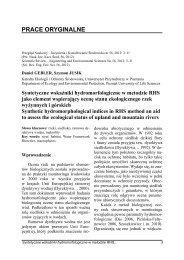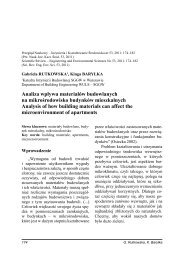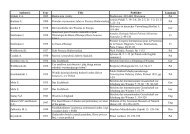INFORMATION SYSTEMS IN MANAGEMENT IV
INFORMATION SYSTEMS IN MANAGEMENT IV
INFORMATION SYSTEMS IN MANAGEMENT IV
Create successful ePaper yourself
Turn your PDF publications into a flip-book with our unique Google optimized e-Paper software.
Enterprise resource planning (ERP) predicts and balances demand and supply. It isan enterprise-wide set of forecasting, planning, and scheduling tools, which:• links customers and suppliers into a complete supply chain,• employs proven processes for decision-making, and• coordinates sales, marketing, operations, logistics, purchasing, finance, productdevelopment, and human resources.Its goals include high levels of customer service, productivity, cost reduction, andinventory turnover, and it provides the foundation for effective supply chain managementand e-commerce. It does this by developing plans and schedules so thatthe right resources – manpower, materials, machinery, and money – are availablein the right amount when needed. Figure 6 shows a graphical view of ERP.ADVATAGES AND DISADVANTAGES OF ERP <strong>SYSTEMS</strong>The main reason for using ERP systems is to make possible online informationsharing and flow efficiently throughout all departments, plants and other units of acompany. The practical benefits are divided into five aspects [11]:1. Operational – can offer benefits in terms of cost reduction, cycle term reduction,productivity improvement, quality improvement, and improved customerservice.2. Managerial – can help an organization achieve better resource management,improved decision making and planning, and performance improvement.3. Strategic – can assist in business growth, alliance, innovation, cost, differentiation,and external linkages4. IT infrastructure – supports business flexibility, reduced IT cost and marginalcost of business units’ IT, and increased capability for quick implementation ofnew applications.5. Organizational – supports organization structure change, facilitating employeelearning, empowering workers, and building common visions.One of the main advantages of ERP is that it provides an integrated environmentand frees the company from using software “islands” that do not effectively interfacewith each other. Without ERP, a company must use isolated software for handlingcustomer orders, one for managing product engineering and bill of materials,one for inventory tracking, one for finance management etc. Another advantage isthat an event is entered only once and is available to all departments by relatedmodules and transactions immediately. It eliminates the data redundancy problem.Management of data can be done more easily.Additionally, ERP provides a chance for a company to renew and develop its businessprocesses. From customer interaction point of view, ERP includes the conceptsof front office (how the company interacts with customers), which includeCustomer Relationship Management (CRM), back end (internal workings of the43




